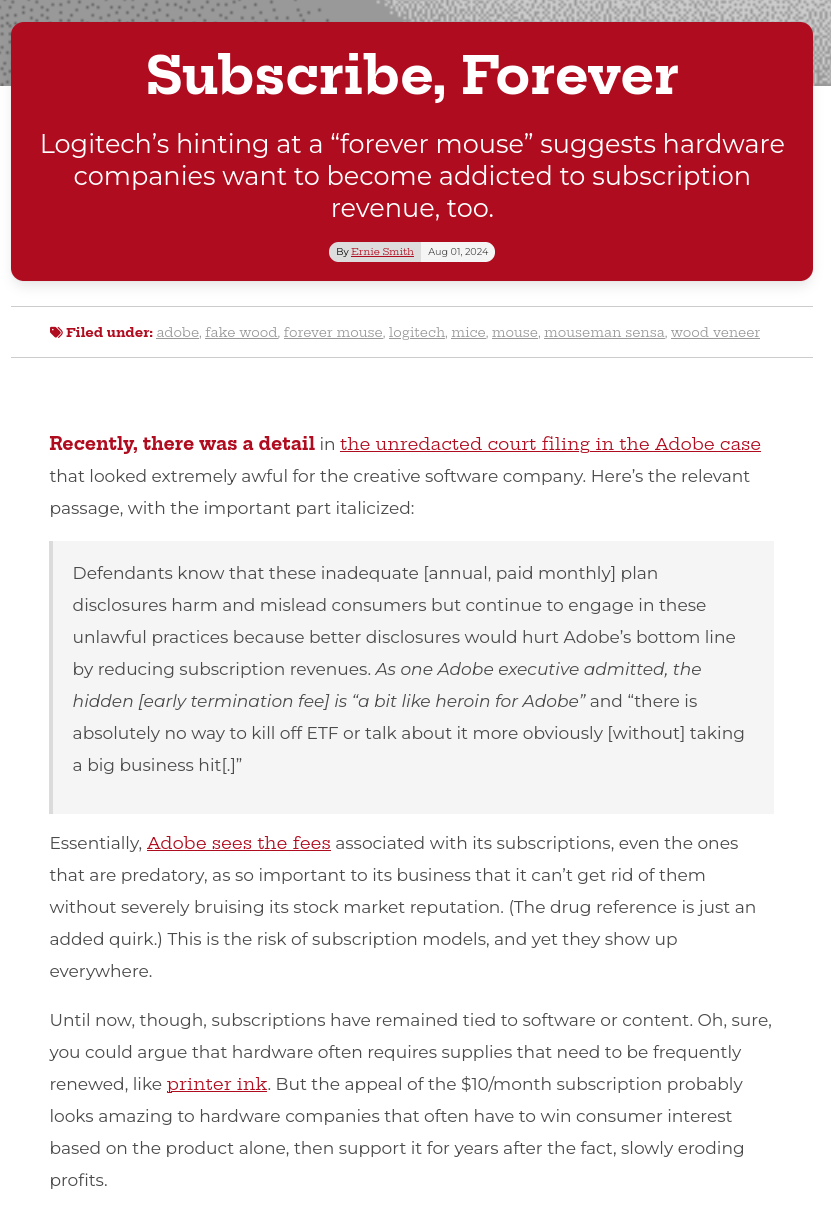New Upcoming Series About DRM and TPM
Under the plasticised belly of Microsoft Windows there are heaps upon heaps of user-hostile routines* (which are sinister not just because they slow down the computer while taking up electricity or wasting invaluable, scarce battery life) and other - as in some more - such routines get added in situ over Windows Update, technically the world's largest botnet which can remotely add more back doors
We are in the process of preparing a new series detailing where we collectively stand when it comes to lock-downs and restrictions across a spectra of devices.
The term "devices" is intentionally broad as it can be as large as a car or even a tractor. Or as small as batteries and mice!

This series won't be about Windows and Microsoft. DRM and TPM (we won't expand those acronyms as they're intentionally misleading and they latch onto false marketing with nice-sounding words like "confidential") are a lot bigger than Microsoft, so Microsoft will be just one example of that (Apple will be another, as will Google**). What's most important here is the principles, set aside the brands (companies and products come and go).
Do not be gullible or naive. Equip yourself with better understanding of gadgets, knowing that companies successfully popularising them (e.g. iPhone) does not imply merit.
People use computers every day (not just Microsoft stuff; many regularly use Android or iOS, which physically and literally follow them). We try to educate but not preach people about what this means and how to defend themselves - an approach long embraced by security expert Dr. Andy Farnell from the Cyber Show (C|S).
DRM and TPM are not mutually exclusive as there are overlaps and the underlying goals are similar; in short, the user (of the device) is presumed an 'enemy' and treated accordingly. There is typically some third party controlling permissions remotely (e.g. DRM services/servers) and this party has financial and/or political motivations other than the user's or even opposite to the user's. This renders many devices a bit like 'enemies' of the person carrying them. How insulting a relationship. Of course this isn't openly advertised and users are not properly informed (if at all!) of what's going on at the finer levels, several levels deeper than the user interfaces.
Is it too late to correct or to undo the harm?
No.
Things have in many ways gotten worse, but for determined and eager individuals there's usually a way out - an alternative. Never say never. Become part of the change, the resistance, join the antagonists (to unjust power, which can corrupt absolutely).
We'll do our best to name and explain some of the alternatives that are still available. We believe divestment (rejection of hostile devices) will increase demand for more ethical options, manifesting more and more of those - at the very least so as to meet market demand. █
_______
* Peter Gutmann cautioned about this almost 20 years ago, but much of his work is now offline, albeit archived [1, 2, 3]. And also, as it is related to this topic and still online: Windows Vista, HDCP and Digital Rights Management | Windows Vista Protected Media Path DRM already broken?
** Google, being a Net or Web giant, takes DRM to the level of object transmission online. It tries hard to impose this on everybody.
